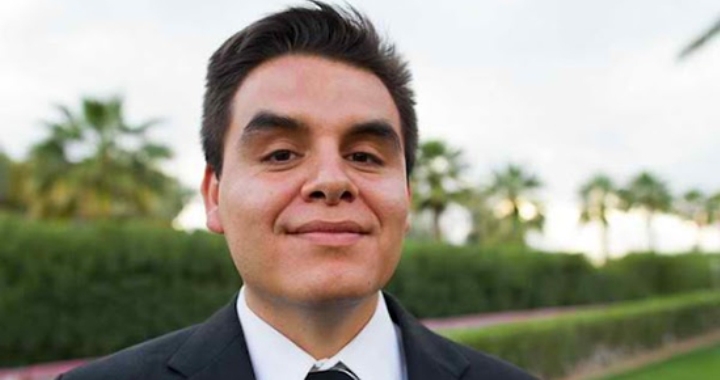Is it possible to give an invocation for a public group without it becoming a religious prayer?
Yes, according to Arizona State Rep. Juan Mendez, who offered a secular invocation Tuesday, May 21, 2013, for the Arizona House of Representatives. Mendez, who identifies himself as a secular humanist, delivered a thoughtful call to action for the legislators that quoted scientist Carl Sagan and urged lawmakers to base their work in values of relevance to all citizens of Arizona, whether religious or not.
Don’t bow your heads, Mendez said as he began his prayer, but look around at the potential and power of the people in this room.
“I would like to ask you to take a moment to look around the room at all of the men and women here, in this moment, sharing together this extraordinary experience of being alive and of dedicating ourselves to working toward improving the lives of the people in our state, ” Mendez said in the prayer, which is posted in its entirety at Patheos.com.
Mendez’s prayer comes shortly after the U.S. Supreme Court announced that it will once again consider public prayer by government bodies when it re-convenes in the fall.
Related: How Do We Pray for the Troops? by Craig M. Watts
Past decisions about prayer by government bodies in their public meetings have found that rotating prayers among traditions technically evades the U.S. Constitution’s prohibition of government-established religion. But in practice, nearly all of those prayers have come from Christian ministers.
It’s a conundrum Huntsville’s City Council has faced, along with the school board for Jackson County just to our east.
I found myself thinking about prayer on Friday night, May 17, 2013, as I covered the graduation of 330 seniors from Lincoln County High School in my hometown of Fayetteville. The program listed a “moment of silence, ” to be led by the senior class secretary.
I was happily surprised.
Years ago, when I taught at the school, I had tried, unsuccessfully, to convince the administration that sectarian prayers, even when led by a student, don’t pass Constitutional muster – and are also impolite and a bad witness because they impose on others a kind of “bow to my God” Nebuchadnezzar moment.
There are ways to get around that rudeness – ways that are faithful both to the faith tradition of the invocation giver and respectful of the variety of life paths represented in any large public gathering. In the U.S., now, at least 20 percent of any group of random people will be those who don’t incorporate faith into their lives, at least not in any identifiable way. The ministers active with Huntsville’s Interfaith Mission Service are happy to talk with anyone about public prayer. And any professional chaplain, whether military or hospital, can explain their code of ethics, one that stresses ministering to others, not proselytizing.
But the LCHS graduation’s “moment of silence” was filled with the student’s own prayer, a lovely one that also ended with the “in the name of Jesus, our Lord and Savior” tag that many Christians think is a necessary sign-off on prayers. I’m not calling the humanist police — I’m sure the teacher who informed her that she would be responsible for the prayer did not give her any guidelines to help her make her prayer more ecumenical — but it did not pass Constitutional muster.
Until I became close friends with non-Christians – Jews, Muslims, Hindus, Buddhists, atheists – I am not sure I ever gave that “in Jesus name” line any thought. But now, hearing the phrase in public prayers through their ears grates on my heart. Now I can hear how thoughtlessly, lovelessly, heedlessly, how irreverently rude it is.
Also by Kay: 8 Things I Know for Sure About Prayer
Because I personally take so seriously the invitation to pray in the name of Jesus, I consider it a violation of the spirit of Jesus’ teachings to pray in public using any words that could bar someone’s access to the spirit of the prayer.
As a Christian, who does, in fact, pray in the name of Jesus in private and with groups of fellow Christians, I now see that to do so in a public prayer violates a Christian ministry. Being responsible for a moment of public prayer is the sacred responsibility to speak for the group in a manner meant to unite, not divide, that group in the face of the vastness of human needs.
“For small creatures such as we, the vastness is bearable only through love, ” Mendez said in his prayer, quoting Carl Sagan.
And, surely, that is a prayerful invitation to which all of us, Christian and non-Christian alike, can say “Amen!”
—
Kay Campbell reports on religion for The Huntsville Times and al.com. Her commentaries were named best in the country in 2011 by the Religion Newswriters Association. She can be reached at [email protected] and on Twitter @KayTimes.
Photo Credit: Mendez for Arizona
Advertisement

